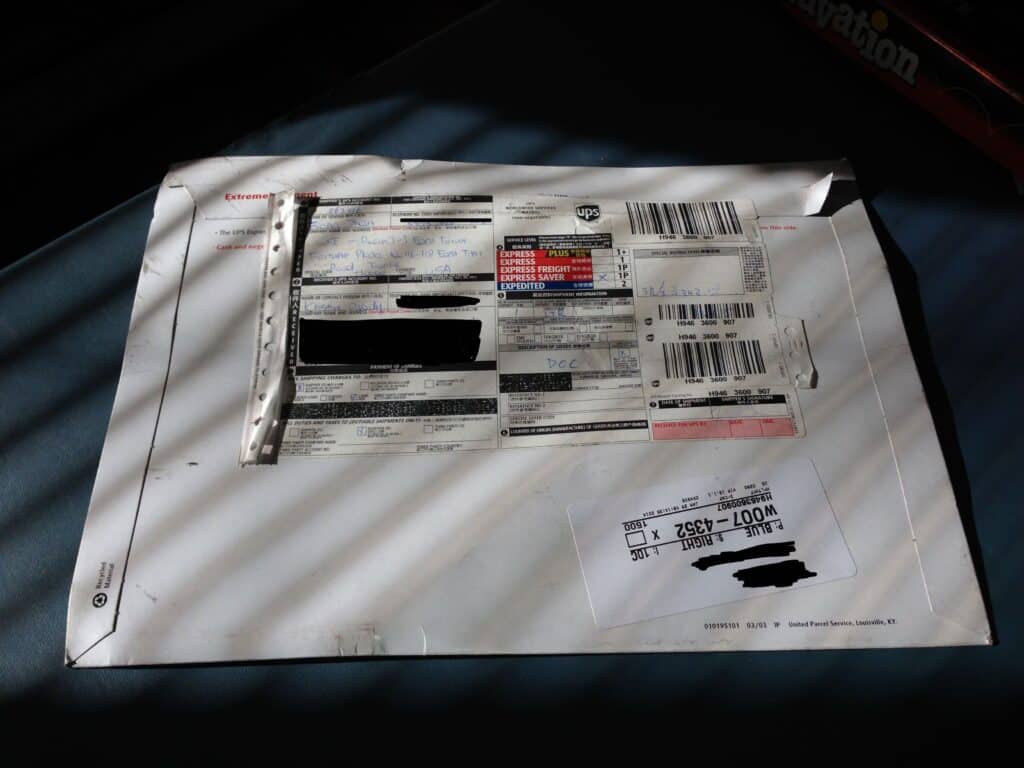Travel Visa to China – Which One Do You Need?
The Basic Requirements for a Travel Visa to China
China is a country that takes their documents very seriously. When traveling to China, do not try to bypass any of these official document requirements. There are many different kinds of visa to choose from. Each one has specific requirements pertaining to the specific kind of travel visa to China that you apply for.
Learn about the requirements here and get your paperwork in order to explore the mysteries China has to offer.
Passport Requirements for a Travel Visa to China
Let’s start with the basics.
Your passport must be valid for at least six months beyond your intended date of entry into China. This is a strict requirement, so ensure your passport is up to date.

You need at least two blank pages in your passport for visas. These are necessary for the visa sticker and entry stamps. Even more space is required if your visa allows you to stay in China for a longer period of time.
When I lived and worked in China, my passport received a work visa and a residency permit for the specified time period of my contract. And before I received my official work visa, I had a temporary visa. This one kept me legally able to stay in China and work while I waited for the more permanent one year work visa.
Travel Visa to China Requirements
China requires most foreign nationals to obtain a visa before entering the country. It’s essential to check the latest information on visa requirements and travel advisories, as policies may change. Preparing all necessary documents in advance will ensure a smooth travel experience to China.
Review the information at The Embassy of the People’s Republic of China, and click on consular services.

The type of visa you need depends on the purpose of your visit. Here are the most common types of visas available.
Extra Health and Safety Tips for Traveling to China
These extra tips will provide more information to you while planning your trip to China. The more information you have at your disposal, the easier your trip will be.
Covid-19
As of now, China may require proof of COVID-19 vaccination, a negative PCR test, or other health documentation upon arrival. It is important to check current regulations closer to your travel date, as these requirements can and do change frequently.
Chinese citizens often wear face masks on the street. They do this to keep themselves protected from others, and to prevent the spread of germs if they feel sick. Some people wear them as protection from the pollution on the busy city streets.
Travel Insurance
While not mandatory, it is highly recommended to have travel insurance that covers medical expenses, including COVID-19-related treatments if you are requested to take a test.
Special Administrative Regions
Hong Kong and Macau have different entry requirements. If you plan to visit these regions, check the specific entry requirements for each.

Application Process for a Travel Visa to China
You can apply for a Chinese visa at the Chinese Embassy or Consulate in your home country or through a visa service center authorized by the Chinese government.
Generally, visa processing takes about 4-5 business days, but expedited services are available for an additional fee. Be prepared for delays and make sure to give yourself enough time in advance to get these steps done.
I applied for and was granted a work travel visa to China twice, and both times took longer than 4-5 business days. You must account for the time gathering the required documents together and then sending them out for approval. Then you must wait for that process to be completed before they are returned to you.

A few short business days sounds wonderful, but in my opinion and experience, not likely. Give yourself a cushion of time to allow for mailings, holidays, delays, and waiting for bureaucracy to slowly move through its required steps.
Many steps are involved and they all build and rely upon each other. Patience is definitely a required character trait if you’re ever to get a travel visa for China.
Chinese Embassy and Consulates
The People’s Republic of China maintains one embassy in the United States, This is the embassy in Washington, D.C. There are also 4 consulates in other large cities.
- New York
- Chicago
- Los Angeles
- San Francisco
You must choose one of these specific locations when applying for your visa. Check out the exact locations of the embassy and consulates here.
Visa Processing Companies
If you wish to hand over a lot of the burden of jumping through hoops to get your paperwork validated and stamped correctly, I highly suggest using a visa processing service company.
There are companies located all around the United States, so search online for one near you. The costs range from a minimum of $150 and up to and over $500 depending on how many documents are in your visa application packet.

I used a visa service both times I applied to work in China. Getting some of the documents stamped and approved in my home state before sending to the visa company kept my costs down. My home state of Rhode Island is tiny, so driving around to the correct government office wasn’t too time-consuming.
However, if you live in a larger state and are not close to the embassy or a consulate, then using a visa processing service is the way to go. Check them out online and make sure to read their reviews.
Important Details About the Visa Process
Here are a few more tips to help you get your Chinese visa. Remember, patience is definitely a virtue in this whole endeavor.
Application Process
The application process for a travel visa to China involves several steps. First, you need to complete an online application form on the Chinese visa application website.
After filling out the form, you’ll need to print it, sign it, and bring it along with other required documents to the nearest Chinese Consulate or Embassy. Some consulates also require appointments, so it’s advisable to check their specific requirements ahead of time.
It’s important to note that the application process can take several days to weeks, depending on the type of visa and consulate, so plan accordingly.
Patience is definitely a virtue in this process. Plan ahead of time to allow all of the steps to get completed.
Required Documents for a Travel Visa to China
The required documents for a Chinese visa application can vary based on the type of visa.
However, common documents include your passport (valid for at least six months beyond your intended stay and with at least two blank pages), a recent passport-sized photo, a completed visa application form, and proof of residence status if applying from a third country.
Additionally, get extra passport-sized photos. They are used for several forms and documents once in China.
For a Tourist Visa, you may need to provide additional documents like a copy of your flight itinerary and hotel reservations.
Business travelers often need an invitation letter from a Chinese business entity. Ensure all documents are accurate and complete to avoid delays in your application.
Visa Fees and Processing Time
Visa fees for American citizens vary depending on the number of entries (single, double, or multiple entries) and the visa type.
As of now, fees generally range from $140 for a single-entry visa to more for multiple entries. Additionally, the processing time can vary from 4 to 15 business days, depending on the service chosen (regular, express, or rush service).

Be aware that the express and rush services will incur additional fees. It’s best to apply for your visa well in advance of your planned departure to accommodate any unforeseen delays.
Visa Validity and Duration of Stay
A Chinese visa’s validity refers to the period within which you must enter China, while the duration of stay refers to the maximum number of days you can stay in China per entry. For American citizens, a Tourist Visa typically offers a stay of up to 30 days per entry, but this can be extended depending on your circumstances.
For multiple-entry visas, each entry usually allows a stay of 60 or 90 days. Be mindful of your visa’s expiration date and the length of your allowed stay to avoid overstaying, which can result in fines or other penalties.
Special Considerations
If you have a criminal record or have previously overstayed a visa in China, you may face additional scrutiny or even denial of your application.

Moreover, the Chinese government has strict rules about what constitutes lawful activity under each visa category. For example, using a Tourist Visa to conduct business or work is strictly prohibited.
Also, due to the current global situation, entry policies can change rapidly. Always check for the latest travel advisories and entry requirements, especially regarding health declarations and potential quarantines.
Renewal and Extension
If you plan to stay in China longer than your visa permits, you may apply for an extension at the local Exit and Entry Administration Office in China. Ask locals for assistance in locating the office, or get in touch with your HR or college administration for help.
The application should be made at least 7 days before your current visa expires. Keep in mind there is no guaranteed approval for an extension. It is at the discretion of Chinese immigration authorities. You must provide valid reasons for the extension and any supporting documents to increase your chances of approval.
In Conclusion – Getting a Travel Visa to China
There are many steps to getting a travel visa to China and all of them must be completed correctly.

I know it sounds like an insane amount of preparation to just be allowed to visit the country, but it is definitely worth the effort. If you’re traveling as a tourist, I suggest obtaining the 10 year multiple-entry visa for just a little more money. This allows you to return without applying for a new visa for your next Chinese adventure.
By keeping these details in mind, American citizens can better navigate the process of obtaining a Chinese visa, ensuring a smooth and successful application experience. Best of luck and have an amazing time exploring the many facets of China.
Learn more about China with these posts listed below.
Important Tips for Traveling to China Navigating the Great Wall of the Work Visa in China Canton Tower - A Symbol of Progress and Prosperity in Guangzhou Traveling Solo to Yangshuo China Is It Safe to Travel Around China? Zhujiang New Town - Where Culture, Commerce, and Cuisine Collide









